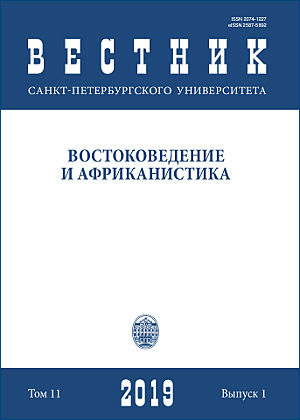“The British and the Trans-Saharan trade”: The Colonial State Policies in Undermining the Trans-Saharan trade in Hausa Land (Northern Nigeria), 1890s–1920s
DOI:
https://doi.org/10.21638/spbu13.2019.106Abstract
The research examines the impact of British policies in undermining the trans-Saharan trade. The paper reassesses the position of the Northern Nigerian economy in relation to the new economic order introduced by the British. Issues discussed include the re-orientation in relation to the merchants; the basic concepts of colonial economy as defined by the British in Northern Nigeria. In addition, the paper highlights the colonial economy as distorted, characterized by the over growth of certain sectors needed by the colonial state i.e., foreign trade, while sectors connected with the indigenous markets i.e., cottage based production, local, regional or the trans-Saharan trade were neglected. In a nut shell, those activities (like the trans-Saharan trade) which could compete with colonial commerce or production were discouraged and prohibited directly or indirectly. In this respect, the trans-Saharan trade between Central Sudan and North Africa was stagnated during the colonial days and apparently, it was the same with trade within the West African sub-region. The distinctive feature in this context of an imperial economic system is that the colonial state had, within limits, created the formal framework for development in Northern Nigeria. This was what happened in the relationship between the mercantile class, the peasantry and the large expatriate firms who were backed by the colonial state and gained monopoly position to trade in raw materials and achieving their goals.
Keywords:
Northern Nigeria, trans-Saharan trade, colonial policy
Downloads
References
Downloads
Published
How to Cite
Issue
Section
License
Articles of "Vestnik of Saint Petersburg University. Asian and African Studies" are open access distributed under the terms of the License Agreement with Saint Petersburg State University, which permits to the authors unrestricted distribution and self-archiving free of charge.





